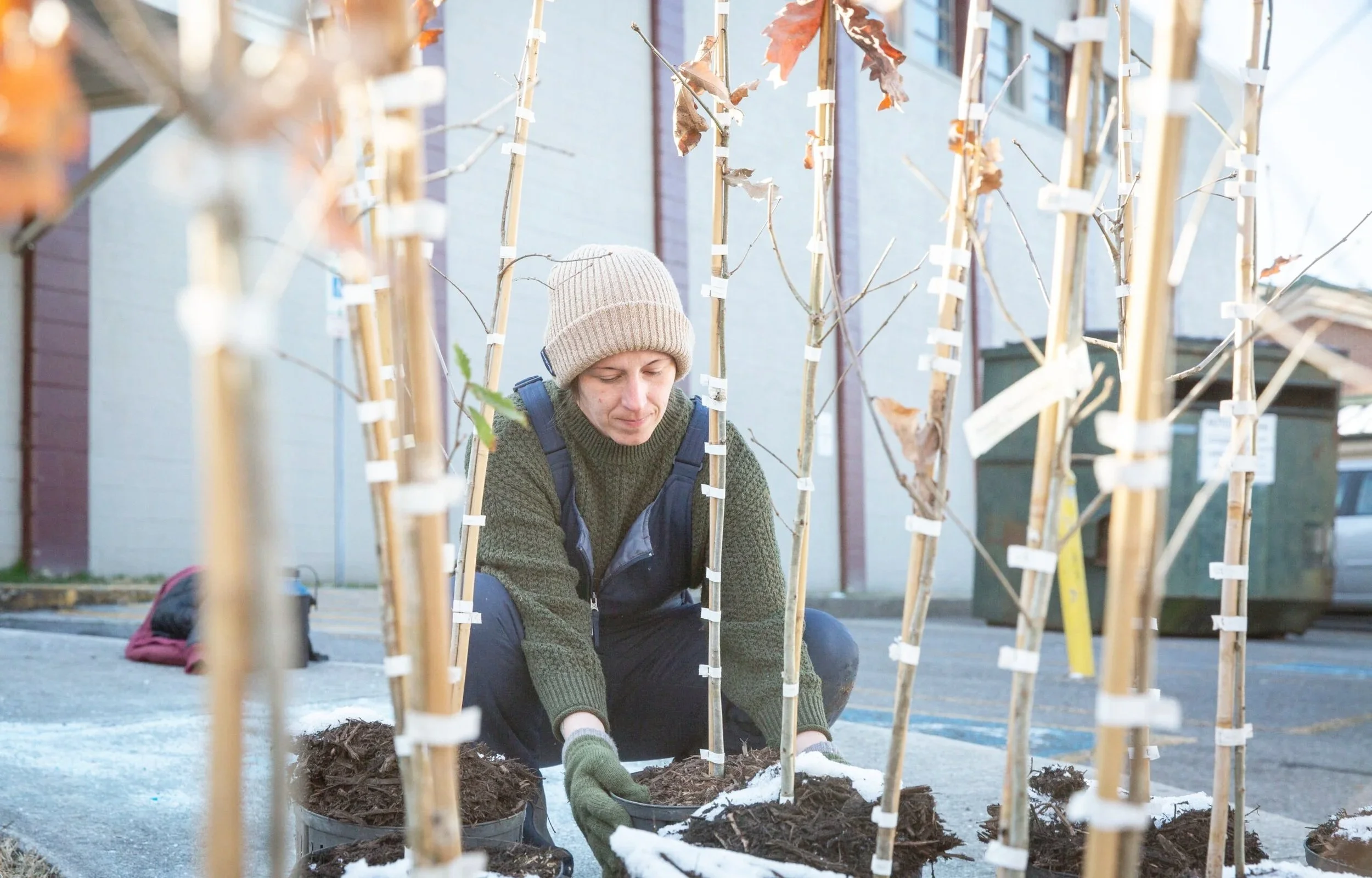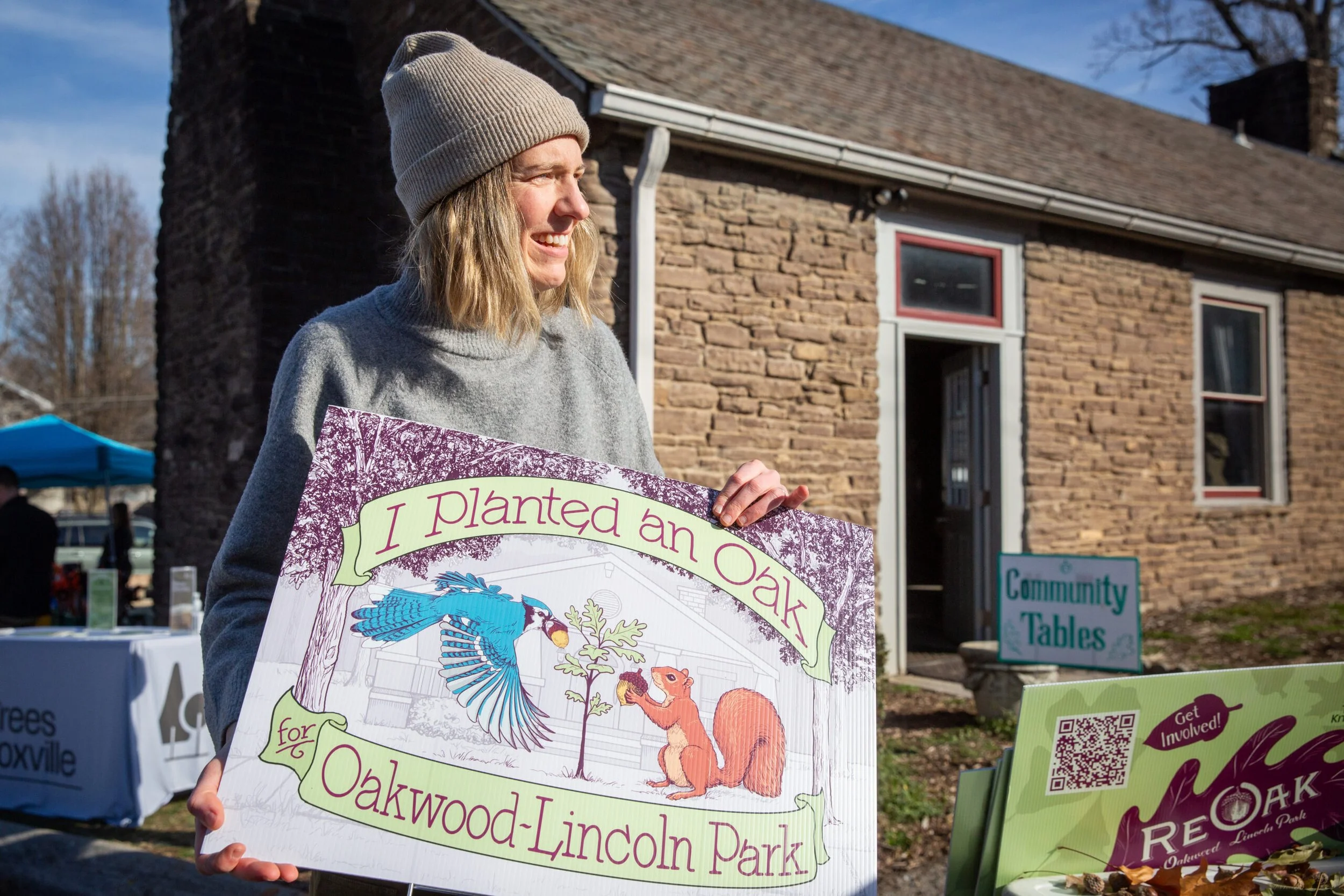
ReOak Oakwood
Restoring oak populations in Knoxville's largest neighborhood through citizen forestry, reestablishing forest connectivity and urban canopy
Roots of Regeneration
When we restore the relationship between people and place we grow community resilience
Re-Oak Oakwood reconnects Knoxville's largest urban neighborhood with its namesake. This restoration initiative addresses the declining oak population in Oakwood-Lincoln Park.
Hands-on community workshops have engaged residents in planting and care activities, creating a network of citizen foresters committed to long-term stewardship. Strategic relationships with the Forest Service, Trees Knoxville, and city officials offer a replicable template for community forestry across the region.
The project established a community oak nursery that propagates locally sourced saplings that preserve genetic diversity of native species, ensuring trees adapted to local conditions achieve higher survival rates. The monitoring framework, developed with the City of Knoxville, tracks forest canopy expansion and improved connectivity between preserved areas. This evidence-based approach enables adaptive management while demonstrating measurable progress in habitat restoration. Beyond the immediate benefits of carbon sequestration, improved air quality, and enhanced biodiversity, the project has catalyzed broader conversations about urban ecology throughout Knoxville.
PROJECT TYPE
Regenerative Design, Strategy & Advisory
LOCATION
Knoxville, Tennessee, USA
PARTNERS
U.S. Forest Service, Trees Knoxville, City of Knoxville Urban Forestry Division, Oakwood-Lincoln Park Neighborhood Association, local schools and community centers
COLLECTIVE MEMBER
Rebecca Harman

